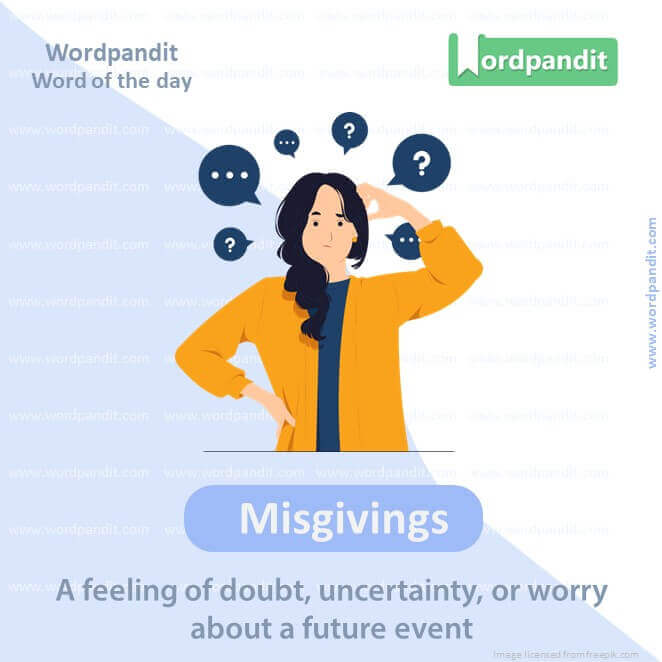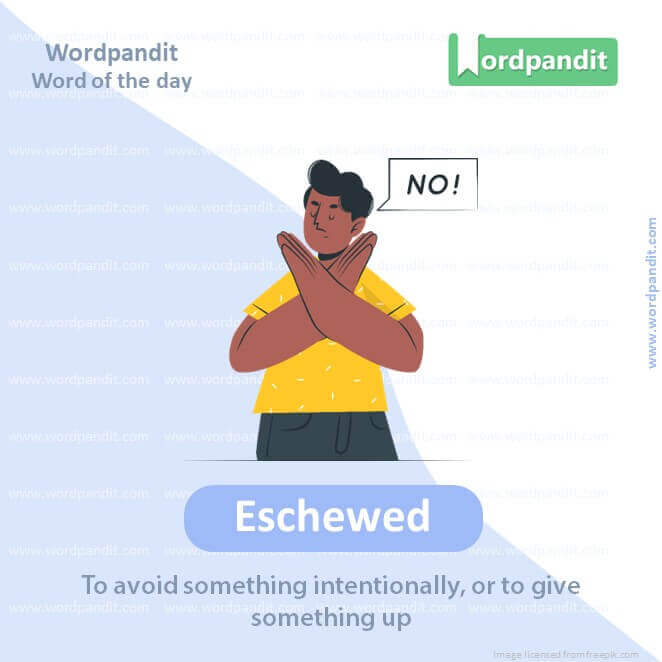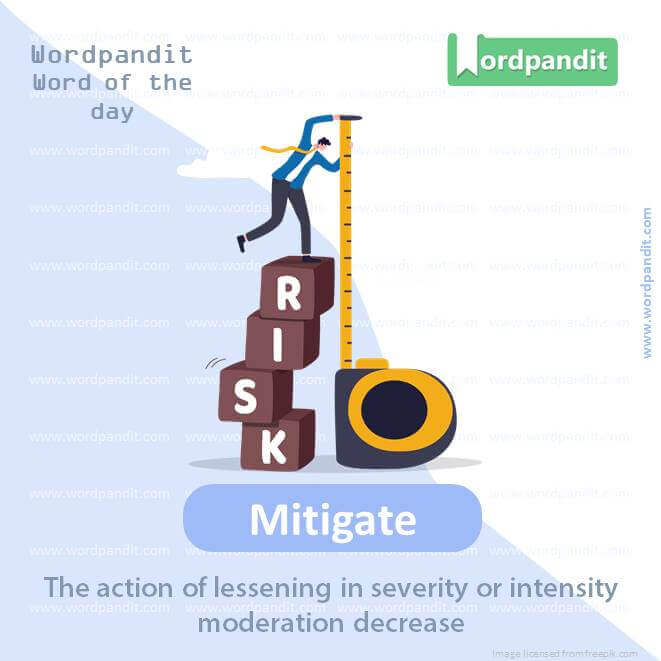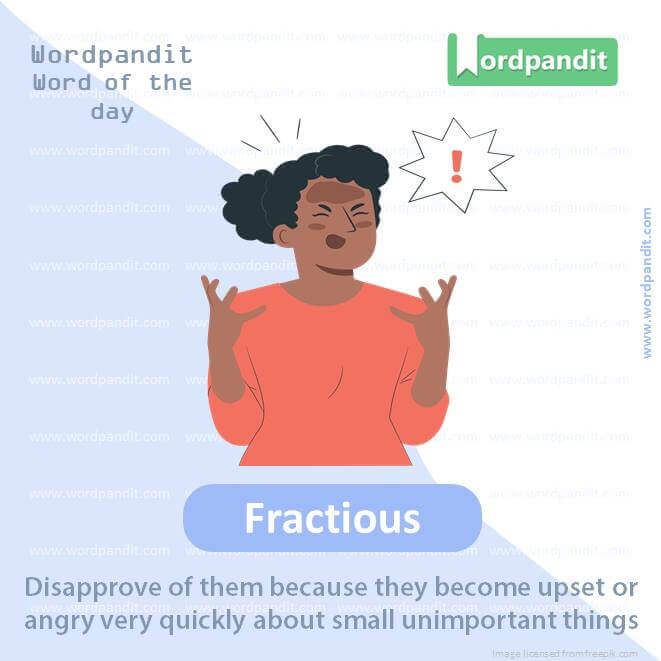Daily Vocabulary Words: List of Daily Used Words in Leading Indian Newspapers
Hi there. Welcome to this special section @ Wordpandit. Our endeavour here is straightforward: highlighting daily vocabulary words that you would come across in leading newspapers in the country. We have included the following newspapers in our selection:
• The Times of India
• The Economic Times
• Hindustan Times
• Mint
• Indian Express
We are putting in extensive work to develop your vocabulary. All you have to do is be regular with this section and check out this post daily. This is your repository of commonly used words; essentially, we are posting a list of daily used words. Hence, this has significant practical application as it teaches you words that are commonly used in leading publications mentioned above.
Visit the website daily to learn words from leading Indian newspapers.

WORD-1: MISGIVINGS
CONTEXT: “Despite initial misgivings about the new education policy, many educators are now coming forward to appreciate its holistic approach.”
SOURCE: The Times of India.
EXPLANATORY PARAGRAPH: When you have a tummy ache, you feel uncomfortable, right? Misgivings is like a tummy ache, but for your mind. It means that you are worried or not sure about something in the future. For example, you might have misgivings about going to the dentist because you are scared.
MEANING: A feeling of doubt, uncertainty, or worry about a future event (Noun).
PRONUNCIATION: mihs-gi-vingz
SYNONYMS: Doubts, Apprehensions, Reservations, Unsureness, Hesitations, Distrust, Skepticism
USAGE EXAMPLES:
1. I have serious misgivings about her capability to lead the project.
2. He expressed his misgivings to his friends.
3. She was having misgivings about starting her new job.
4. Despite my misgivings, I decided to go with them.
WORD-2: PRIMAEVAL
CONTEXT: “The archaeological team discovered primeval artifacts that shed light on ancient civilizations and their way of life.”
SOURCE: Indian Express.
EXPLANATORY PARAGRAPH: Do you remember the dinosaurs that lived a long, long time ago? Well, the word “primeval” is used to talk about things that are very, very old, like those dinosaurs or even older! It could be a tree, a rock, or anything that’s been around for a very long time.
MEANING: Relating to the ancient, earliest ages or a very old history (Adjective).
PRONUNCIATION: prih-mee-vuhl
SYNONYMS: Primal, Ancient, Primitive, Primordial, Prehistoric, Early, Antediluvian
USAGE EXAMPLES:
1. The primeval forests were being destroyed at an alarming rate.
2. You could feel a sense of primeval fear creeping up in the shadows.
3. The cave paintings gave us a glimpse into primeval life.
4. The primeval instinct of survival kicked in.
WORD-3: LEAPFROGGING
CONTEXT: “India’s tech sector is leapfrogging to new heights, bypassing traditional models and adopting innovative solutions faster than many developed nations.”
SOURCE: Live Mint.
EXPLANATORY PARAGRAPH: Have you ever played leapfrog, where you jump over your friend’s back? In the word world, “leapfrogging” is used when someone or something goes ahead of others in a quick and surprising way, just like how you jump over your friend in the game!
MEANING: To overtake (someone or something) so as to move into a leading position. (Verb)
PRONUNCIATION: leep-frawg-ing
SYNONYMS: Surpass, Overtake, Outdo, Transcend, Outstrip, Excel, Exceed
USAGE EXAMPLES:
1. The company is leapfrogging its competitors with its innovative products.
2. Technological advancements are leapfrogging at an unprecedented rate.
3. She leapfrogged several senior colleagues to get the promotion.
4. With hard work and determination, he leapfrogged to the head of the class.
WORD-4: GRAFT
CONTEXT: Recent allegations of graft in the infrastructure projects have led to public demands for more transparency in government tenders.
SOURCE: The Economic Times.
EXPLANATORY PARAGRAPH: You know how in some cartoons, characters are seen taking things that don’t belong to them, sneakily? That’s similar to what “graft” means, but it’s more about powerful people taking things unfairly. But there’s another form of ‘graft’, like when gardeners attach one plant to another plant to make it healthier and stronger.
MEANING: Dishonest gain, as by bribery (noun). It also means the act of joining a part of one plant to another plant so that they can grow together (noun).
PRONUNCIATION: grah-ft
SYNONYMS: Bribery, Corruption, Payola, Unscrupulousness, Sleeve, Dishonesty. For the other meaning: Transplant, Implantation, Transfer, Insertion, Hybridization.
USAGE EXAMPLES:
1. He was caught involved in graft and bribery.
2. The mayor’s graft scandal cost him the reelection.
3. The graft of the apple trees has proved successful.
4. The medical team performed a skin graft on the patient.

WORD-5: ESCHEWED
CONTEXT: In a surprising turn, the celebrated author eschewed digital platforms, opting instead for a traditional paperback release of her latest novel.
SOURCE: Hindustan Times.
EXPLANATORY PARAGRAPH: You know how you avoid eating broccoli because you don’t like it? That’s kinda like “eschewed”, but it’s a fancy grown-up word for avoiding or staying away from things on purpose.
MEANING: To avoid something intentionally, or to give something up (verb).
PRONUNCIATION: es-choo-ed
SYNONYMS: Avoid, Shun, Evade, Dodge, Elude, Steer Clear of.
USAGE EXAMPLES:
1. He eschewed traditional methods and developed his own way.
2. She has eschewed publicity ever since she became famous.
3. The government has eschewed policies that could lead to economic inflation.
4. He eschewed violence and advocated peaceful means to resolve conflicts.
WORD-6: GAWK
CONTEXT: “Tourists would often gawk at the architectural marvels of the ancient city, captivated by their intricate designs.”
SOURCE: The Times of India.
EXPLANATORY PARAGRAPH: You know when you see a really cool toy in a shop window and you just can’t stop staring? That’s what “gawk” means. It’s when you look at something in a really obvious way, usually because you’re amazed or surprised.
MEANING: Stare openly and stupidly, often in surprise or admiration (Verb).
PRONUNCIATION: gawk
SYNONYMS: Stare, Goggle, Ogle, Rubberneck, Peer, Gape, Dumbfound.
USAGE EXAMPLES:
1. The kids gawked at the magician performing tricks.
2. Tourists often gawk at the skyscrapers in the city.
3. She couldn’t help but gawk at the stunning dress display.
4. Pedestrians were gawking at the accident site.
WORD-7: MOTLEY
CONTEXT: “The festival saw a motley crowd of artists, musicians, and craftsmen showcasing their unique talents.”
SOURCE: Indian Express.
EXPLANATORY PARAGRAPH: You know when you open a box of mixed color crayons and there are so many different colors to choose from? That’s what “motley” means. It’s used to describe a group of things or people that are very different from each other and do not seem to belong together.
MEANING: Varied in appearance or character (Adjective).
PRONUNCIATION: mot-lee
SYNONYMS: Miscellany, Assorted, Diverse, Varied, Mixed, Multifarious, Heterogeneous.
USAGE EXAMPLES:
1. The charity event attracted a motley crowd of people.
2. He wears a motley outfit that reflects his eccentric personality.
3. We are a motley group of friends, but we get along well.
4. The box contained a motley collection of ornaments.

WORD-8: MITIGATE
CONTEXT: “Environmental agencies are introducing measures to mitigate the effects of urban pollution, focusing on sustainable public transportation.”
SOURCE: Live Mint.
EXPLANATORY PARAGRAPH: Picture a hot summer day when you’re really thirsty, and then you drink a glass of cold water. That water doesn’t make the heat go away, but it makes you feel a lot better, right? That’s what “mitigate” means: it’s doing something to make a bad situation better.
MEANING: The action of lessening in severity or intensity moderation decrease (Verb).
PRONUNCIATION: mi-tuh-gate
SYNONYMS: Alleviate, Reduce, Lessen, Relieve, Minimize, Diminish, Weaken.
USAGE EXAMPLES:
1. They are taking measures to mitigate the environmental impact.
2. The government needs to mitigate the effects of unemployment.
3. She had to find a way to mitigate the situation.
4. Efforts are being made to mitigate the risk in the financial sector.
WORD-9: GRIT
CONTEXT: “Her grit and determination paved the way for a successful mountaineering expedition, inspiring many young adventurers.”
SOURCE: Hindustan Times.
EXPLANATORY PARAGRAPH: Imagine when you’re trying to ride your bicycle up a really tough hill, but you don’t give up. The “grit” here means that kind of spirit, where you keep going even though it’s hard. There’s also another “grit” which is tiny pieces of sand or stone.
MEANING: Courage and resolve; strength of character (Noun). It also means small loose particles of stone or sand (Noun).
PRONUNCIATION: grit
SYNONYMS: Bravery, Tenacity, Determination, Fortitude, Endurance, Resilience. For the other meaning: Sand, Gravel, Pebble, Dust, Silt, Particles.
USAGE EXAMPLES:
1. He showed a lot of grit in facing his illness.
2. The team’s grit brought them to the finals.
3. The sidewalks were covered with grit after the landslide.
4. I could feel the grit in my shoes as I walked on the beach.

WORD-10: FRACTIOUS
CONTEXT: “The fractious debate in the parliament reflected the deep-seated divisions on the proposed legislation.”
SOURCE: The Economic Times.
EXPLANATORY PARAGRAPH: You know how sometimes when you’re very tired or hungry and you get very grumpy and hard to please? That’s what “fractious” is. It’s when someone, usually a child, does not behave well and easily becomes upset.
MEANING: Disapprove of them because they become upset or angry very quickly about small unimportant things (Adjective).
PRONUNCIATION: frak-shuhss
SYNONYMS: Irritable, Grumpy, Peevish, Cranky, Cantankerous, Petulant, Surly.
USAGE EXAMPLES:
1. The child became fractious and upset when he couldn’t get his toy.
2. I can get quite fractious when I’m stressed.
3. Our fractious cat likes to scratch the furniture.
4. The fractious meeting ended without any resolution.
Vocabulary Daily Use
Bringing fluency to one’s language usage necessitates the regular incorporation of a broad range of words. Central to this is the understanding of vocabulary daily use. But, how should one effectively learn and employ this vocabulary daily use? Here are some proven methods to enhance your language proficiency.
Understanding vocabulary is only half the job; incorporating these vocabulary daily use words effectively in conversations is equally crucial. Be it social or professional, the acquired words should be part of your everyday language. Regular communication using these vocabulary daily use words can help etch them more firmly into your language repertoire.
Reading materials like newspapers, articles, and books expose you to vocabulary daily use in their natural context. Seeing the vocabulary daily use words in sentences presents a clearer picture of its correct usage. Another excellent option is to watch movies or listen to songs in the targeted language– a fun, effective way to take in vocabulary daily use.
Maintaining a personal dictionary or a word diary can prove helpful. Note the freshly learned vocabulary daily use words, their meanings, and a sentence to understand its usage. Revising these words regularly will reinforce their meanings and usage, accelerating your language acquisition.
App reflection is also a handy tool for learning vocabulary daily use. Language apps often come equipped with daily word challenges and usage examples. Regular practice on these platforms can help seamlessly blend these vocabulary daily use words into your linguistic framework.
Finally, having consistent conversations with peers or language learning communities can be beneficial. These discussions challenge you to better utilize vocabulary daily use, thereby making them an integral part of your active speaking vocabulary.
In conclusion, absorbing vocabulary daily use into your linguistic reservoir involves active application, avid reading, word diary upkeep, usage of language apps, and regular usage in conversations. Combining these techniques guarantees a fruitful journey towards learning vocabulary daily use.













